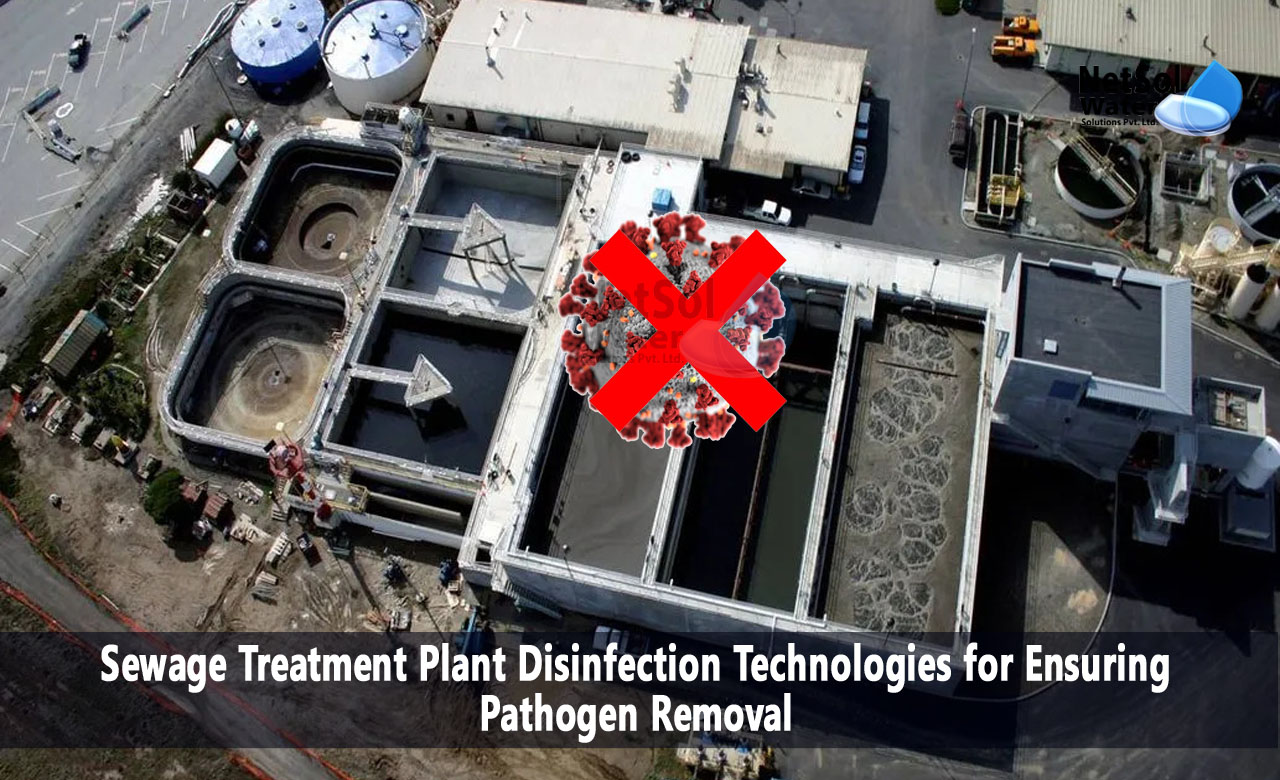STP Plant Disinfection Technologies for Ensuring Pathogen Removal
Sewage treatment plants (STPs) play a critical role in safeguarding public health by treating wastewater and removing harmful pathogens. Disinfection is a crucial step in the treatment process, as it ensures the elimination of disease-causing microorganisms. This blog explores various disinfection technologies employed in STPs to ensure effective pathogen removal and protect public health.
The Importance of Pathogen Removal in STPs
Sewage contains a wide range of pathogens, including bacteria, viruses, and parasites, which pose a significant risk to human health if not properly removed. Pathogens can cause diseases such as cholera, typhoid, hepatitis, and gastroenteritis. Therefore, it is vital to implement robust disinfection measures in STPs to prevent the spread of waterborne diseases and protect the environment.
Common Disinfection Technologies
Some of technologies for disinfection are as follows:
1. Chlorination:
Chlorination is one of the most widely used disinfection methods in STPs. Chlorine-based compounds, such as chlorine gas, sodium hypochlorite, or calcium hypochlorite, are added to the treated wastewater to kill pathogens. Chlorine effectively deactivates microorganisms by damaging their cellular structures and inhibiting their metabolic processes. However, chlorination can form disinfection byproducts (DBPs) that require proper management to minimize potential health risks.
2. UV Disinfection:
Ultraviolet (UV) disinfection utilizes UV light to inactivate pathogens. UV radiation damages the DNA or RNA of microorganisms, rendering them unable to reproduce and cause infections. UV disinfection systems are compact, easy to operate, and do not produce harmful byproducts. However, the effectiveness of UV disinfection can be influenced by water turbidity and the need for regular maintenance and lamp replacement.
3. Ozonation:
Ozone disinfection involves the application of ozone gas to wastewater. Ozone is a powerful oxidizing agent that effectively destroys pathogens by breaking down their cellular components. It offers a strong disinfection capability, is highly effective against a wide range of microorganisms, and does not leave harmful residues. However, ozonation requires specialized equipment and careful control of ozone dosage to ensure proper disinfection.
4. Chlorine Dioxide:
Chlorine dioxide is a highly effective disinfectant that can be used as an alternative to chlorine. It is a strong oxidizing agent that rapidly penetrates the cellular structures of microorganisms, leading to their inactivation. Chlorine dioxide is effective against a broad spectrum of pathogens, including chlorine-resistant organisms. It also produces fewer DBPs compared to chlorine. However, chlorine dioxide can be more expensive and requires careful handling due to its potential reactivity.
5. Membrane Filtration:
Membrane filtration is a physical separation process that effectively removes pathogens by passing water through a semi-permeable membrane. This technology can achieve high levels of pathogen removal, including bacteria, viruses, and parasites. Membrane filtration can be combined with other disinfection methods to ensure comprehensive treatment. However, proper operation and maintenance of the membranes are crucial to maintain their effectiveness.
Factors Influencing Disinfection Efficiency
Some of Factors Influencing Disinfection Efficiency are as follows:
1. Contact Time:
The duration of contact between the disinfectant and microorganisms is crucial for effective pathogen removal. Sufficient contact time ensures that an adequate dose of the disinfectant is delivered to inactivate pathogens.
2. Water Quality:
Water quality parameters, such as turbidity, pH, temperature, and organic matter content, can impact the effectiveness of disinfection. Turbidity can interfere with UV disinfection and reduce the efficiency of chemical disinfectants. Monitoring and adjusting water quality parameters are essential to optimize disinfection performance.
3. Disinfectant Residual:
Maintaining an appropriate disinfectant residual in the treated water distribution system is vital to prevent microbial regrowth. Regular monitoring and adjustment of disinfectant dosages are necessary to ensure a residual concentration that effectively prevents the growth of pathogens.
4. System Design and Operation:
Proper design and operation of disinfection systems, including accurate dosing, adequate mixing, and appropriate distribution, are critical for achieving optimal disinfection performance. Regular maintenance and calibration of equipment are necessary to ensure consistent operation and accurate disinfectant dosing.
Summary:
Effective disinfection is crucial in sewage treatment plants to ensure the removal of pathogens and protect public health. The selection and implementation of appropriate disinfection technologies, such as chlorination, UV disinfection, ozonation, chlorine dioxide, and membrane filtration, play a vital role in achieving comprehensive pathogen removal. Consideration of factors such as contact time, water quality, disinfectant residual, and system design is essential for optimizing disinfection efficiency. By implementing robust disinfection measures, STPs can ensure the delivery of safe and clean water to the environment and minimize the risk of waterborne diseases.
Leading manufacturer of sewage treatment plants in India.
Netsol Water is the leading manufacturer, supplier, and exporter of a quality selection of water treatment, and wastewater treatment products in India, by using advanced sewage treatment methods.
RO plants, water softeners, ETPs, STPs, DM plants, AMC, O&M, Ultra filtration, UV, Ozonation, ZLD plants, Anoxic tanks, and other goods and services are available from us. We also provide services to businesses in sectors including automotive, pharmaceutical, textile, pulp & paper, beverages, refineries, schools, hospitals, office buildings, and hotels, among others.
Netsol Water is Greater Noida-based leading water & wastewater treatment plant manufacturer. We are industry's most demanding company based on client review and work quality. We are known as best commercial RO plant manufacturers, industrial RO plant manufacturer, sewage treatment plant manufacturer, Water Softener Plant Manufacturers and effluent treatment plant manufacturers. Apart from this 24x7 customer support is our USP. Call on +91-9650608473, or write us at enquiry@netsolwater.com for any support, inquiry or product-purchase related query.



